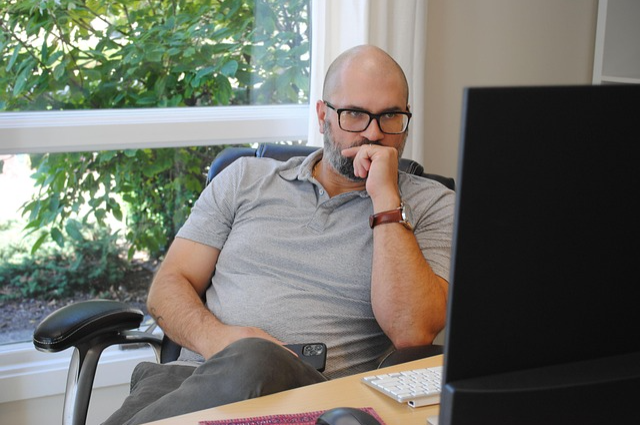
Philosophical Foundations of Self-Skepticism
Self-skepticism has philosophical roots, especially in the writings of David Hume (1711–1776) and René Descartes (1596–1650). Descartes used methodological skepticism to eliminate all ambiguous ideas in his landmark work Meditations on First Philosophy, leading to his well-kn conclusion, Cogito, ergo sum ("I think, therefore I am"). The basis for epistemological inquiry was established by this extreme self-doubt, which emphasized the significance of challenging one's understanding.
By highlighting the limitations of empirical knowledge and the fallibility of human reason, David Hume further developed skepticism (A Treatise of Human Nature, 1739). Hume promoted a cautious approach to belief formation, arguing that a large portion of what we consider knowledge is founded on habit rather than intellectual certainty. These thinkers' effect on contemporary definitions of self-skepticism emphasizes the necessity to scrutinize one’s cognitive biases and subjective perspectives.
Psychological Insights on Self-Skepticism
Self-skepticism's significance is empirically supported by cognitive psychology. Cognitive biases, first proposed by Daniel Kahneman and Amos Tversky in 1979, show how human reasoning is frequently faulty. The need for self-skepticism to combat these inclinations is demonstrated by biases like the confirmation bias, which favors information that confirms preexisting ideas, and the Dunning-Kruger effect, which overestimates one's knowledge.
The role of metacognition—thinking about one's thinking—in self-skepticism is emphasized by psychologists. People with metacognitive awareness can identify their cognitive mistakes and take remedial action. Research indicates that those who engage in self-skepticism are more likely to be flexible, receptive, and resilient when confronted with novel or conflicting information (Wilson & Brekke, 1994).
The Role of Self-Skepticism in Decision-Making
Self-skepticism is essential to making logical decisions. People can reduce their risk of making snap decisions or biased choices by challenging their preconceived notions and taking into account different points of view. In scientific research, this idea is clear since theories must pass stringent examination and testing before being approved. Similar to this, self-skepticism helps leaders in business and leadership identify any blind spots, look for different viewpoints, and refrain from overconfidence while making strategic plans.
Self-skepticism in daily life encourages people to reevaluate their opinions of other people, which improves interpersonal connections. Having a self-skeptical mindset helps foster empathy and productive communication, as misconceptions frequently result from strongly held beliefs. Socrates is a great example of intellectual humility and development because of his dialectical method, which entails challenging one's and other people's opinions.
A Personal Encounter with Self-Skepticism
I frequently find myself doubting my ability to write. On certain days, I have faith in my ability to clearly express complicated concepts. On other days, I mistrust every word I type as I look at the page. Do I have a strong case? Are my concepts sufficiently unique? Will my viewpoint be useful to readers, or am I just restating what has already been said? I sometimes hesitate to share my work because these thoughts turn into self-doubt.
I once almost gave up on a project I had been working on for weeks because I was sure it wasn't good enough. However, after taking a step back, I saw that self-skepticism could be a useful tool if it was balanced. It forced me to reevaluate my points, polish my wording, and eventually create a more compelling, intelligent piece. Learning to distinguish between constructive self-skepticism and crippling self-doubt has been a journey—one that continues every time I sit down to write.
How I Got Over It—Finding Balance
- Accept imperfection— No piece of writing (or any work) is ever truly perfect. Growth comes from embracing flaws and improving over time.
- Seek external feedback—trusted peers provide perspectives that help overcome personal doubts.
- Focus on strengths—Instead of dwelling on weaknesses, I learned to recognize what was working well and build on it.
- Trust the process—revision and improvement take time; self-skepticism should be a tool for refinement, not an excuse for inaction.
- Push past fear—sharing work despite doubts builds confidence and resilience over time.
- Separate self-skepticism from self-criticism— One promotes growth; the other can be destructive if unchecked.
The Risks and Limitations of Excessive Self-Skepticism
Although there are many advantages to self-skepticism, excessive self-doubt can result in paralysis by analysis, a condition in which a person is unable to make judgments because they are doubting their logic too much. The perils of excessive skepticism, which can result in nihilism and passivity, were cautioned against by philosophers like Friedrich Nietzsche. Therefore, a balanced approach is crucial, where confidence in well-supported conclusions tempers doubt.
Furthermore, self-skepticism shouldn't turn into imposter syndrome or self-criticism, where people unfairly minimize their skills. The secret is to keep a healthy dose of skepticism that promotes development without compromising self-efficacy.
Conclusion
Self-skepticism is an essential intellectual tool that promotes critical thinking, boosts self-awareness, and improves decision-making. It is grounded in philosophical traditions and backed by psychological research, acting as a defense against dogmatism and cognitive biases. It must be used sparingly, nevertheless, to prevent excessive self-doubt. Accepting self-skepticism as an ongoing process of investigation and introspection allows people to develop intellectual humility, flexibility, and a better comprehension of both the self and the outside world.
References
- Descartes, R. (1641). Meditations on First Philosophy.
- Hume, D. (1739). A Treatise of Human Nature.
- Kahneman, D., & Tversky, A. (1979). "Prospect Theory: An Analysis of Decision under Risk." Econometrica, 47(2), 263-292.
- Wilson, T. D., & Brekke, N. (1994). "Mental Contamination and Mental Correction: Unwanted Influences on Judgments and Evaluations." Psychological Bulletin, 116(1), 117-142.
- Nietzsche, F. (1886). Beyond Good and Evil.
